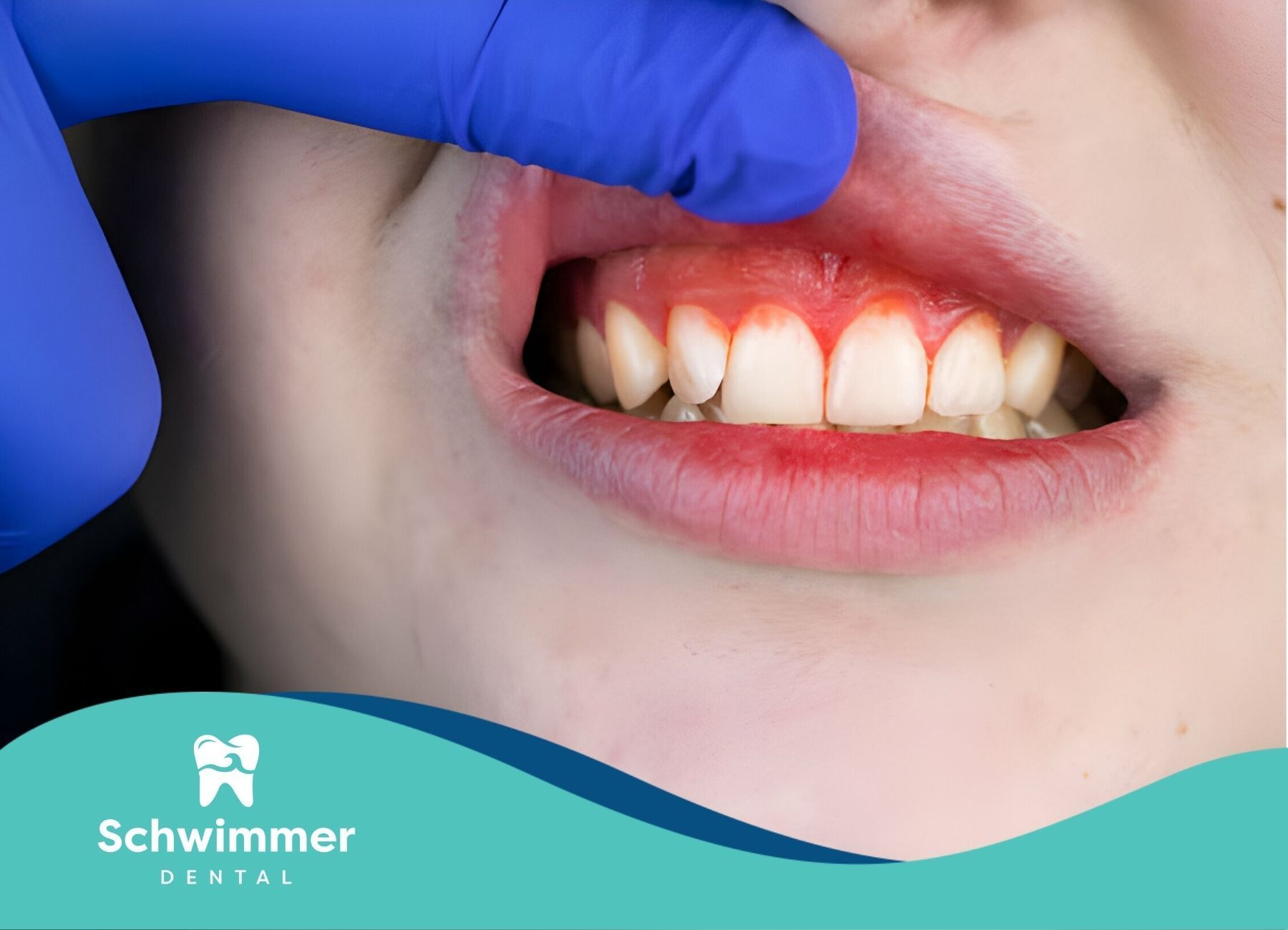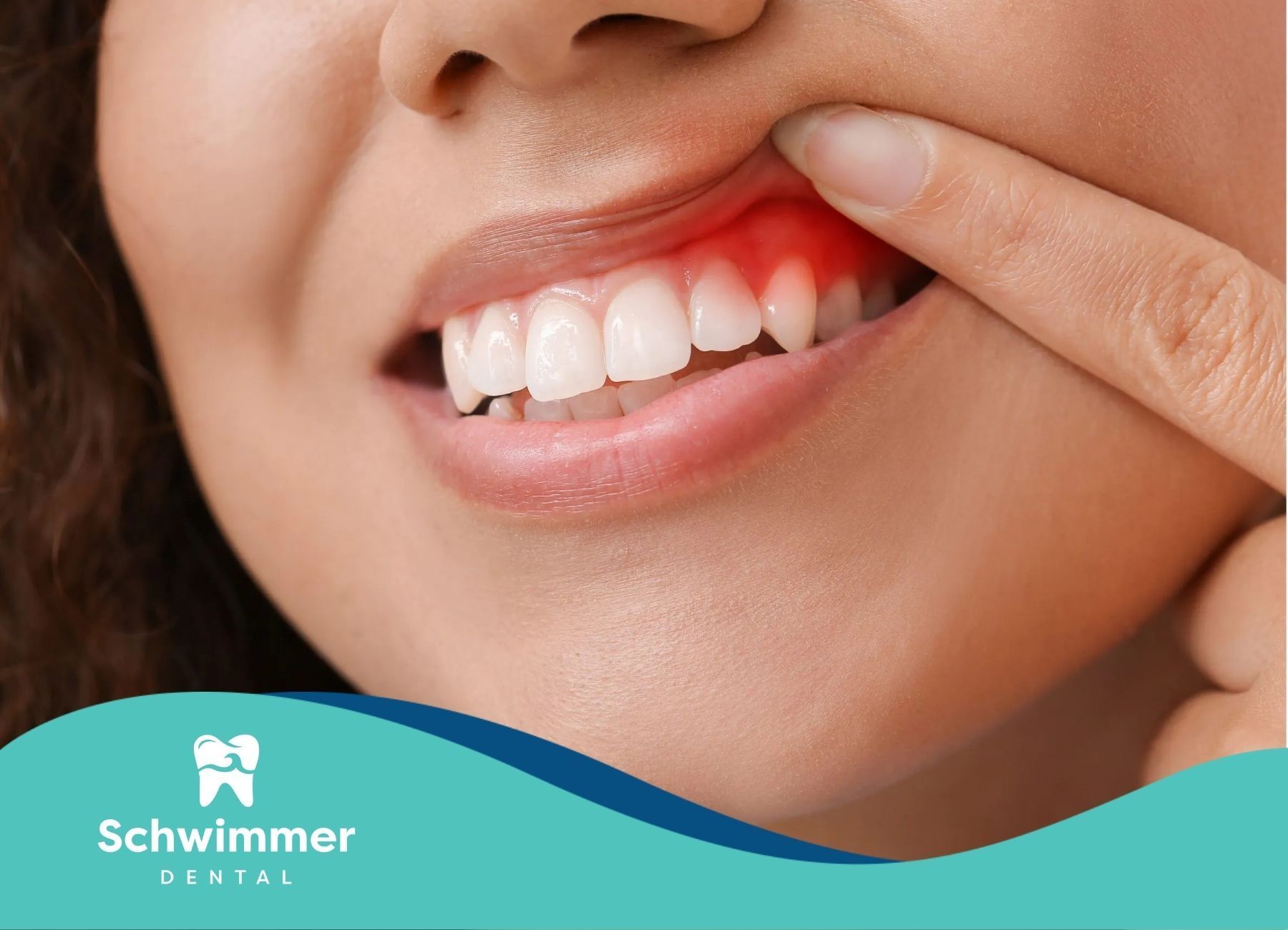Have an appointment? Complete the Intake Form
The Power of Restorative Dentistry Revealed
Maintaining optimal oral health is paramount to overall well-being. When dental issues arise, restorative dentistry steps in to revitalize smiles and restore oral functionality. This specialized branch of dentistry concentrates on addressing a wide spectrum of dental issues, ranging from minor imperfections to complex tooth loss. By employing cutting-edge techniques and materials, restorative dentistry offers a pathway to achieving a healthy, confident smile that enhances your quality of life.
Understanding Restorative Dentistry
Restorative dentistry stands as a testament to the fusion of art and science in dentistry. It delves beyond mere aesthetics, focusing on the crucial aspect of restoring the structural integrity and function of your teeth. Each procedure aims to address specific dental concerns while ensuring long-lasting results.
Whether it's a simple filling to repair a cavity or a comprehensive full-mouth reconstruction, restorative dentistry provides a personalized approach to meet individual dental needs and aspirations.
Defining Restorative Dentistry and Its Importance
Restorative dentistry focuses on the diagnosis, management, and treatment of oral health issues that impact the structure and function of your teeth. Its primary goal is to restore your teeth to their optimal form and function, ensuring you can bite, chew, speak, and smile with confidence.
The significance of restorative dentistry extends far beyond aesthetics. It plays a crucial role in preventing further dental problems, such as gum disease and tooth decay. By addressing these issues promptly, restorative dentistry helps preserve your natural teeth and maintains the integrity of your overall oral health.
Ultimately, restorative dentistry empowers individuals to regain control of their oral health, enhance their quality of life, and embrace a future filled with confident smiles.
The Evolution of Restorative Dental Practices
Over the years, restorative dentistry has witnessed remarkable advancements, transforming the field and elevating patient care to new heights. Innovations in materials, techniques, and technology have revolutionized the way restorative dental procedures are performed today.
Modern restorative dentistry emphasizes minimally invasive techniques, striving to preserve as much of the natural tooth structure as possible. This patient-centric approach ensures optimal comfort, faster healing times, and long-lasting, natural-looking results.
With the advent of digital dentistry, restorative procedures have become more precise and efficient. From digital impressions to computer-aided design and manufacturing (CAD/CAM) technology, these advancements have significantly improved the accuracy, fit, and durability of restorations.
Key Components of Restorative Dentistry
Restorative dentistry encompasses a wide array of procedures, each designed to address specific dental concerns. From simple fillings to complex dental implants, these procedures are tailored to restore the form, function, and aesthetics of your teeth.
Whether you're dealing with a chipped tooth, a missing tooth, or severe tooth decay, restorative dentistry offers effective solutions to revitalize your smile and improve your oral health.
Types of Dental Restorations: Fillings, Crowns, and Implants
Understanding the different types of dental restorations is essential for making informed decisions about your oral health.
Here are some of the most common restorative procedures:
- Dental Fillings: These are commonly used to repair cavities caused by tooth decay. Composite resin fillings, which match the color of your natural teeth, are a popular choice for their aesthetics and durability.
- Dental Crown: When a tooth is severely damaged or weakened, a dental crown may be recommended. This cap-like restoration covers the entire visible portion of the tooth, restoring its shape, strength, and appearance.
- Dental Implant: Considered the gold standard for tooth replacement, a dental implant is a titanium post surgically inserted into the jawbone. It serves as an artificial root for a dental crown, bridge, or denture, providing unparalleled stability and a natural look and feel.
The Role of Technology in Enhancing Treatment
Advanced techniques and technology have significantly enhanced the field of restorative dental treatment. Digital dentistry has revolutionized various aspects, leading to greater precision, efficiency, and patient comfort.
One remarkable advancement is the use of intraoral scanners, which create highly accurate 3D digital impressions of your teeth. This eliminates the need for traditional, messy impressions, enhancing patient experience and accuracy.
Moreover, CAD/CAM technology allows for the design and fabrication of restorations with exceptional precision and speed. This translates into faster treatment times, fewer appointments, and a more comfortable experience overall.
The Benefits of Restorative Dentistry
Restorative dentistry goes beyond addressing dental issues; it significantly improves your overall oral health, well-being, and quality of life.
From restoring your ability to chew and speak properly to preventing further dental problems and enhancing your smile, the benefits of restorative dentistry are numerous and far-reaching.
Improving Oral Health and Preventing Future Issues
By addressing dental issues promptly, restorative dentistry plays a crucial role in maintaining optimal oral health and preventing future complications. Untreated dental problems can escalate, leading to more serious conditions like gum disease and tooth decay.
Gum disease, an infection affecting the gums and supporting tissues, can result in tooth loss and even impact overall health. Restorative treatments, such as scaling and root planing, coupled with proper oral hygiene practices, can effectively manage gum disease and prevent further damage.
Moreover, addressing tooth decay through fillings, crowns, or root canal therapy prevents the spread of infection, preserving your natural teeth and maintaining optimal oral health.
Enhancing the Aesthetic Appeal of Your Smile
Beyond functionality, restorative dentistry significantly enhances the aesthetics of your teeth, boosting your confidence and self-esteem. A beautiful smile can brighten your face and leave a lasting impression.
Cosmetic dentistry procedures, often integrated with restorative treatments, focus on improving the appearance of your teeth. From teeth whitening to dental veneers and cosmetic bonding, these treatments address discoloration, chips, cracks, and gaps, transforming your smile into one you'll be proud to share.
The transformative power of restorative dentistry extends beyond fixing dental issues; it empowers individuals to embrace their smiles with renewed confidence and enjoy the positive impact it has on various aspects of their lives.
Conclusion
Restorative dentistry plays a crucial role in enhancing both oral health and aesthetics. By utilizing advanced technology and techniques, dental restorations like fillings, crowns, and implants provide long-lasting solutions. The benefits extend beyond just appearance, ensuring the prevention of future dental issues. Restorative dentistry can do more than repair teeth—it can restore confidence, comfort, and function to your smile. If you’re looking for
restorative dentistry near me, connecting with a skilled provider ensures you receive personalized care that meets your unique needs.
Schwimmer Dental in New Jersey is redefining what it means to restore a smile. From crowns and bridges to full-mouth rehabilitation, their expert team delivers personalized restorative solutions that blend function with natural aesthetics. Want to rediscover the strength and beauty of your smile? Book your consultation with Schwimmer Dental today and experience the life-changing power of expert restorative care!
Frequently Asked Questions
What Makes Restorative Dentistry a Necessity?
Restorative treatments are essential for addressing various dental problems, such as missing teeth, severe decay, or damage. These procedures restore the functionality of your teeth and prevent future issues, ensuring optimal oral health and well-being.
How long will my dental restoration last?
The lifespan of a dental restoration varies depending on the type of material used, oral hygiene practices, and biting forces. For instance, a dental crown can last 5-15 years or longer, while a dental implant, with proper care, can last a lifetime.
What are the disadvantages of dental restoration?
While generally safe, some potential disadvantages of dental restorations include the need to remove a small amount of tooth enamel for some procedures and the possibility of restorations chipping or becoming loose over time. It's important to discuss any concerns with your dentist.
Sources:
- https://my.clevelandclinic.org/health/treatments/10924-dental-restorations
- https://www.autodesk.com/asean/solutions/cad-cam
- https://my.clevelandclinic.org/health/treatments/17002-dental-fillings
- https://www.healthdirect.gov.au/dental-crown-procedure
- https://www.fda.gov/medical-devices/dental-devices/dental-implants-what-you-should-know
- https://my.clevelandclinic.org/health/diseases/21482-gum-periodontal-disease
- https://www.nidcr.nih.gov/health-info/tooth-decay
Need Assistance? We’re Here to Help
We are dedicated to enhancing your dental health and well-being.
We provide personalized dental care solutions for a confident, healthy smile.
Contact us today for Professional Dental Care.

Our caring staff will help you feel relaxed and comfortable in our state of the art office. We respect your time and pledge to deliver prompt service, backed by the latest knowledge, techniques, and technology.
Email: Office@schwimmerdental.com
Tel: (848) 294-2385
Fax: (732) 899-3347
Address: 1115 Arnold Ave,
Point Pleasant, NJ, 08742
Schwimmer Dental – Website by CWS


